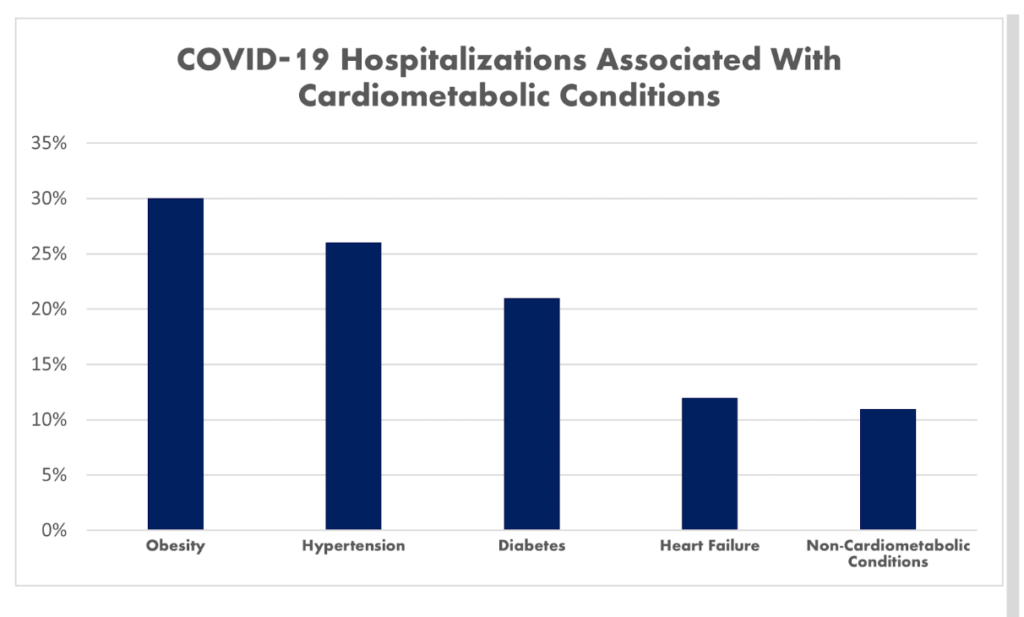I get asked this question a lot: “What is metabolic health?”
It’s not a commonly used phrase in daily life, and most doctors rarely mention it. We’re familiar with cardiovascular health, mental health, and “general” physical health, but not metabolic health.
Today, we believe – and are indeed led to believe – that we are “healthy” as long as we feel okay.
I hear people say things like, “I’m overweight but I’m healthy.”
“I’m on medication but I’m healthy.”
“Other than these conditions, I’m healthy.”
It’s quite peculiar. Imagine someone saying, “Other than my lack of money, I’m rich.”
“I have no tattoos, except for these ones.”
“I’m a non-smoker, I only smoke five a day.”
The truth is, some things in life are absolute. If you are chronically overweight, afflicted by health conditions, require medication to function, or experience a shortness of breath from simply getting up off the couch, it is not accurate to declare yourself healthy.
Objectively, people can feel fine but actually be unhealthy. And this is why metabolic health is such an important area of medical practice.
So what is metabolic health?
Simply put, metabolic health is the body’s ability to utilize what we eat to perform vital functions like repair our cells, provide adequate energy, and protect us from chronic diseases including heart disease and diabetes.
So if you lack general fitness, or have energy crashes throughout the day, you’re displaying symptoms of being metabolically unhealthy.
Metabolic health has an enormous impact on overall longevity as well. In fact, the majority of COVID-19 hospitalizations in the US were due to cardiometabolic conditions – a staggering 89% in November 2020 were attributable to obesity, hypertension, diabetes, and heart failure:

Just 11% of COVID hospitalizations were unrelated to metabolic health
That means an unhealthy metabolism could be putting you at risk for life-changing illnesses and even death.
And if you’re not already tracking your metabolic health, you need to start immediately.
How to track your metabolic health
Tracking your metabolic health is simple. You can measure basic markers like your waist circumference and bodyfat percentage at home, then obtain the rest of the information through lab work : insulin levels, fasting glucose levels, and cholesterol (triglyceride:HDL ratio).
It’s important to remember that although obesity is a marker of poor metabolic health, being slim doesn’t mean you are automatically healthy. The foods we eat affect our cells and blood, and we all know slim people who live on fast food and sugar.
To find out what your own metabolic health is like, you can take a free assessment here.
How to improve your metabolic health
Knowing you have poor metabolic health is only half the battle. Equipped with new goals and a positive mindset, it’s time to take measurable steps towards repairing metabolic damage.
Thankfully, this isn’t hard to do.
And if you start today, you can see results in two weeks or fewer.
Here’s what it takes to get there:
- Start focusing on cooking at home rather than going out to eat. Knowing what you’re eating and relying on whole, real foods can make a huge impact on your metabolic health.
- Add 30 minutes of cumulative exercise to your daily routine. Walking, HIIT, and resistance training are a few of my favorites.
- Focus on holistic healing, including adequate sleep and stress management. Consider kicking off unhealthy habits as well, including smoking, drinking, or eating before bed.
Keep in mind there’s no such thing as an end point for metabolic health. Wellness is a journey, not a destination, so reframing your mindset can help a lot in the beginning.
Resources to learn more about metabolic health
There’s a wealth of information out there about metabolic health. However, it can be tricky to know which resources provide reliable information, especially in the endless sea of ‘noise’ created by conflicting parties online.
If you’re interested in learning more about metabolic health without getting overwhelmed, I suggest using these resources as a starting point:
- My comprehensive glossary of metabolic health terms. This free resource lets you explore metabolic health at your own pace so you can pick apart the concepts most applicable to you.
- My online course regarding the seven principles of metabolic health. In this self-paced video course, you can get a deeper understanding of what metabolic health is, as well as the steps required to ensure sustainable health.
- My bestselling book, ‘Stay Off My Operating Table®.’ You can use this resource as a go-to guide for preventing disease, eating well, and restoring your metabolic health.
Digging deeper into metabolic health can feel like an overwhelming prospect. That said, education is half the battle — and you’re closer to healing than ever.
If you’d like to chat with me further about metabolic health or ask questions about your healing process, don’t hesitate to reach out online by tweeting @ifixhearts.
